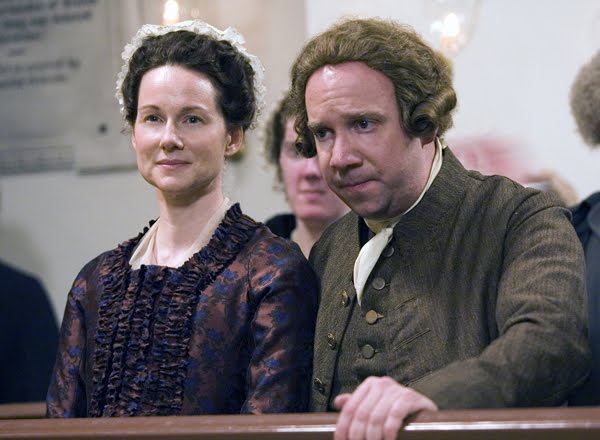I think it's clear that Meriwether Lewis (above) was, at 35, an American hero. He had been the official leader of the 6,000 mile long Lewis and Clark expedition. On his return in 1807, President Thomas Jefferson named him the governor of the Upper Louisiana Territory, it's capital in St. Louis. But just two years later he was dead, in an isolated hostel just north over the border between modern day Mississippi and Tennessee, shot twice and with knife cuts across his throat.
Before the march to the Pacific Ocean, before he even served as the personal aide to the President, Lewis exhibited all the indications of suffering with Asperger syndrome. He was socially inept, a painfully shy, solitary man, “touchy, opinionated, and quarrelsome”. Making friends was difficult for him, and he had the sorry capability of turning first-time acquaintances into lifelong enemies.
And then there was the Lewis and Clark expedition, the greatest achievement of Merriweather's life. But it had cost the Virginian more than was generally appreciated. While on this three year adventure, not only had he repeatedly starved, he had been frozen, and several times nearly drowned, he had also been shot by one of his own men (by accident). And he had probably contracted syphilis.
There is no unambiguous proof of this last affliction, of course. But the average incubation period for syphilis is about 21 days. And, “Six to eight weeks after the initial sore disappears the patient will feel tired, may experience a headache with a fever, have swollen lymph nodes and a sore throat.... hair loss and a skin rash...These symptoms can last for over three months, and sometimes as long as six months.”
We know from the private journals kept by its members, that on 13 and 14 August of 1805 Captain Lewis and some of the men from the expedition ‘partied’ with some Shoshone women - just another part of the destruction of tribal coherence. Twenty-eight days later, on 19 September, Meriwether Lewis became so ill he stopped writing in his diary for three months. And when the expedition returned to St. Louis in late September of 1806, they tarried there for six weeks without any reasonable explanation.
Today an infection of syphilis would be treated with a course of antibiotics. But in the 19th century the standard was a month's treatment with the poisonous metal mercury - taken either orally, applied as a balm, breathing in the vapors, or by a direct injection. Physicians at the time can be forgiven for thinking mercury could cure syphilis because in the normal course of the disease, the symptoms disappear and then reappear at random, perhaps with years between outbreaks.
But even more misleading was that the symptoms of mercury poisoning – numbness and pins-and-needles in the hands and feet, loss of coordination, muscle weakness, mood swings, memory loss, impairment of speech and hearing and mental disturbance- are the same symptoms as advancing syphilis. It is not merely a case of the cure being worse than the disease. In this case, the cure reinforced the disease.
In March of 1807, after that month long delay in St. Louis, Captain Lewis finally reported to the President in Washington, D.C. Jefferson then appointed his ex-neighbor to the governorship of the Upper Louisiana Territory. Then he released Lewis to visit with his family in Virginia, and prepare his journals for publication.
Then, unexpectedly, President Jefferson added to Captain Lewis’ burden. He asked him to go to Richmond to attend the trial of that lightning rod of American politics, Aaron Burr.
Burr (above) was, depending on whom you choose to believe, either a hero seeking to strike a blow against the Spanish empire, or he was a traitor who had raised a small army to foster rebellion within the United States. Jefferson chose to believe the latter because he already hated Burr.
After Burr was acquitted, Meriwether Lewis returned to his mother’s home, not far from Jefferson’s home at Monticello. He wrote to a Philadelphia friend, Mahlon Dickerson, in early November, “What may be my next adventure, God knows, but on this I am determined, to get a wife.” Many women were interviewed for the job, in Virginia and Philadelphia and even Cincinnati, but none were willing to move with Lewis to the distant frontier, even as a Governor's wife. Meriwether's relations with women were as clumsy and difficult as his relations with men.
By late November the still single Meriwether and his brother Reuben had arrived at the falls of the Ohio River (above), where the town of Louisville, Kentucky had been established. There Lewis hired Joseph Charles to run the newspaper he intended upon starting in St. Louis, and in early January 1808 he advertised for subscribers at $3 a year. It was a shrewd political move, making certain his side of political events would be publicize, and was probably suggested by Jefferson who had a history of using newspapers to attack his political opponents.
Lewis would need all the the support he could muster, because in St. Louis (above) he was walking into a den of thieves as treacherous as the one in Washington, D.C,
- 30 -





























.jpg)




.jpg)
























































